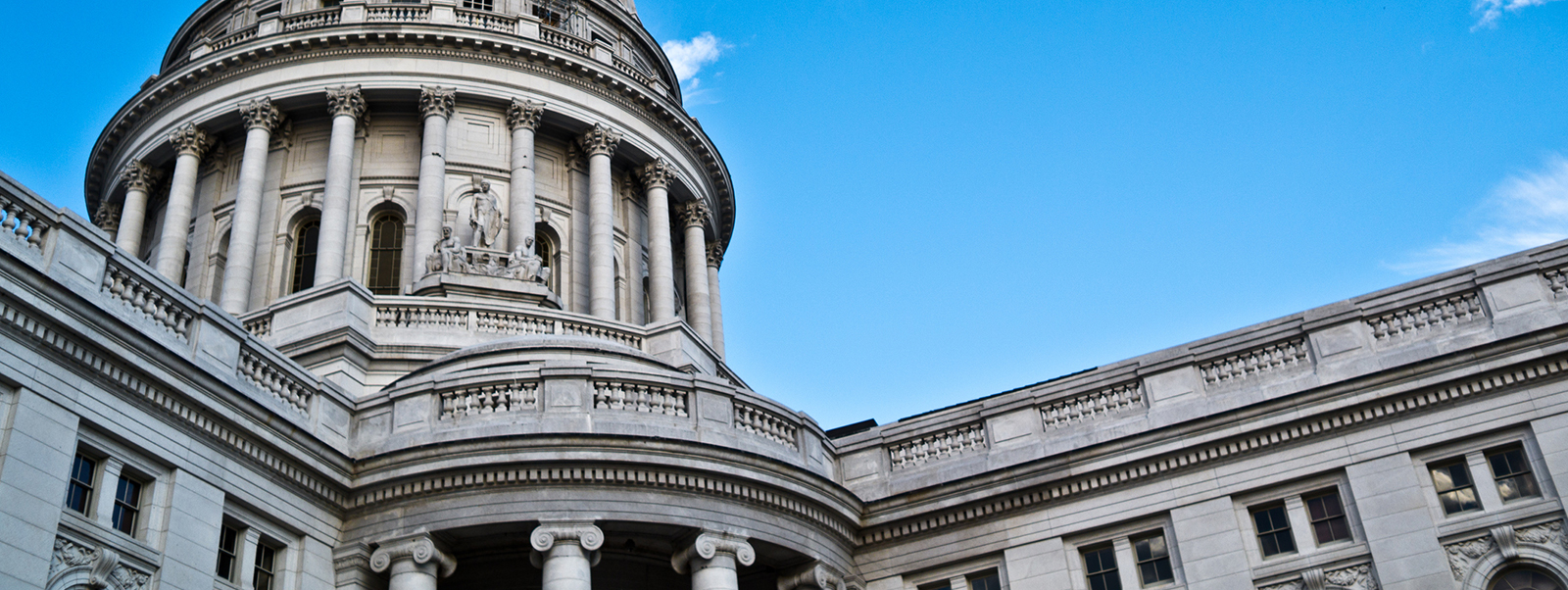By Douglas J. Elliott
This article was first published on June 23, 2020.
In sharp contrast to the current economic catastrophe, the US stock markets are only modestly down from pre-pandemic peaks. Nor is this unique to America; most major stock markets are down by a lot less than intuition would suggest should be the case.
Divergences between short-term economic movements and share prices are hardly new, of course. Decades ago, the economist Paul Samuelson joked (correctly) that the stock market had predicted nine of the last five recessions in the US.
This paper examines whether the current divergence makes sense and what the implications are for public policy. Please note that I am NOT attempting to predict where stock prices will go. Rather, this paper shows why a modest share price decline can be consistent with a terrible shorter-term economic shock.
THE SHORT ANSWERS
There are four big reasons to expect stock markets to react much less sharply to the Coronavirus Recession than economic indicators and forecasts for the next year or two would suggest:
- Stock prices reflect expectations of performance over decades, not just a very bad year or two. This is the biggest source of the differential between the disastrous economic outlook for 2020-21 and the much milder stock price declines.
- Shares are more attractive when interest rates are as low as they are now.
- Market averages are weighted towards larger firms, which will be less damaged in this recession, on average, than smaller businesses.
- Many investors believe governments and central banks won’t let stock prices fall too far, a version of the famous “Greenspan Put.”
These points have a few implications for public policy:
- The performance of the stock market should not be viewed as indicative of strong optimism about the Coronavirus Recession.
- The stock markets do, however, have implications for consumer confidence and wealth effects.
- Further, many politicians are focused on stock markets as indicators of how they are performing. This creates excessive pressure on policymakers to support markets.
- Finally, there are potentially interesting market signals from the relative performance of different companies and sectors.
THE LONGER STORY
The economy has plunged into deep recession in most of the world, yet stock prices are down relatively modestly in most markets. This behavior is baffling if you start with the premise that stock markets go up on good economic news and down on bad news. However, a deeper examination shows that modest declines in stock prices can be perfectly consistent with a very bad recession. Please note again that I am not making predictions about future share prices or expressing a view about whether markets were over or underpriced prior to the pandemic. Rather, I am laying out the logical implications for stock prices of a recession like the current one.
Stock prices are about decades, not just the immediate (awful) future (click here)
Shares represent a percentage ownership in a company that should generally produce value for decades into the future. Therefore, share prices should reflect not just earnings and cash flows over the next few years, but the prospects for performance over decades. As a result, it is entirely possible for investors to believe a company will have a terrible year or two without dramatically marking down prices, if subsequent years should still be good.
One illustration of the difference between 2020-21 and the longer-term comes from the recent 10-year economic forecast of the US’s Congressional Budget Office, a non-partisan body. This study projects that the decade from 2020 to 2030 will have aggregate economic output that is 5.3 percent lower than was projected prior to the pandemic. Deep declines in 2020 would be partially offset by somewhat faster growth in the remaining nine years from this lower base level of activity. Put another way, a terrible year will be averaged in with nine more typical years, plus receiving a bit of bonus growth after the first year as the economy recovers from the depths. It takes the whole decade to get back to the annual level of economic output projected for 2030, pre-pandemic. But, the total gap over the decade of 5 percent is not huge. And, of course, share prices should also be reflecting performance well past the end of that decade, reducing the multi-decade average impact even further.
Even a worse set of assumptions still does not yield a massive effect, averaged over time. Let us assume that the pandemic permanently reduces the capacity of the economy by 5 percent and that the average additional temporary effect is another 15 percent in the first year and 5 percent in the second year. This would yield a full 20 percent decline in economic activity versus the baseline economic output in the first year and 10 percent in the second. Aggregate economic production in all future years is then 5 percent below what it would have been absent the pandemic. (These declines are well beyond what I would anticipate from Covid-19.)
Even using an unrealistically high discount rate of 10 percent and only looking at 20 years of future performance, the net present value of the reduction in the economy is about 7 percent. (Looking at more years would bring the level closer to the permanent 5 percent effect and using a lower discount rate would have a similar effect, by decreasing the weighting of the terrible near-term versus the longer-term average.)
Ignoring the actions governments and central banks have taken that further buoy prices, one would expect a 5 or 7 percent drop in economic output to produce a larger decline in share prices, since most corporations are leveraged to some extent by debt on the balance sheet. There might also be an increase in risk aversion by investors, leading to a higher discount rate and lower share prices. Taken together, these factors might bring share prices down by as much as 10-15 percent, using the previous economic assumptions and not taking account of the positive factors.
Lower interest rates push up share prices, all else equal (click here)
Central banks have moved strongly to push down interest rates to stimulate the economy. As a result, government bond rates in developed economies are significantly lower than they were prior to the pandemic. Many methods for calculating the fair value of share prices use a risk-free discount rate keyed off of government bond rates, making shares look more attractive as interest rates come down. In practice, lower interest rates on bonds makes them less attractive compared to shares and other investments, increasing the demand for shares and therefore their prices.
The practical argument gets muddied a bit, since some of the alternative investments, like corporate bonds, have seen increases in their spreads that more than offset the reduction in the risk-free rate. So, investors who wish to move out of government bonds to gain greater returns do have options besides shares and, in theory, some money invested in shares could flow to corporate bonds. Nonetheless, there is a strong consensus among market observers that the net effect of lower government bond rates has been to increase share prices.
Public companies are generally bigger than private companies (click here)
The Coronavirus Recession is particularly harsh towards smaller companies, which generally do not have the same resilience as larger firms. This affects share prices, as there is a strong correlation between company size and the issuance of shares to the public. Therefore, stock market indices tend to strongly reflect the performance of the larger, more stable companies, compared to the rest of the economy. This reduces the impact on share prices of the damage to the economy as a whole.
Governments and central banks to the rescue (click here)
Many investors appear to believe, particularly in the US, that politicians and central bankers will not let stock markets fall strongly. Some politicians have used strong stock prices as an important indicator of their leadership success and are presumed to be inclined to take strong stimulative action if prices fall. Similarly, but for different reasons, central bankers may wish to avoid substantial price declines. They may fear the confidence impact of falling share prices and/or may view market movements as one indicator of underlying economic trends, through a kind of crowd sourcing of information.
To the extent these factors are at work in improving investor perceptions of the risk/reward trade-off, there has been the creation of significant moral hazard. Investors may take excessive risks, because they believe they are operating with a safety net.
IMPLICATIONS FOR PUBLIC POLICY
The forces above explain unexpectedly strong share prices have several implications for public policy choices.
Policymakers and politicians should be cautious about reading signals from the stock markets. Modest share price declines can be consistent with a very deep, but relatively short recession. Similarly, a surprisingly strong or quick recovery would not necessarily translate into much of a share price rise. That all said, emotions often move share prices too high or drop them too low for a period of time, so news about the next year or so could move share prices significantly. My point is that there is not an underlying reason for a faster or slower recovery to have a major impact on underlying share values.
But, share price movements can affect economic activity through confidence and wealth effects. Stock price movements may not give much reliable information about the near term, but some effects do go in the other direction. Investors’ perceptions of their wealth and therefore spending capacity are definitely influenced by share prices. Further, many others follow the stock market enough to feel more positive about the economy when prices are high. This boost to confidence can stimulate the economy by increasing the willingness to spend or to invest in housing or in business activities.
Policymakers should be careful not to overreact to stock market movements. Confidence and wealth effects do warrant some attention from policymakers, but they would be wise not to overweight the importance of market movements. For example, it would have been a mistake to treat the recent return of US share prices to near peak levels as a signal that no further policy actions would be needed to deal with the very harsh reality of the Coronavirus Recession.
There are two other policy implications of stock market price movements.
Share price movements are a reminder to consider distributional effects of financial and economic policies. As the media has been quick to note, shares are disproportionately owned by wealthier people. Relatively strong stock markets create a powerful narrative that the rich are escaping without much damage, while the poor are being hammered by the recession. This is both a reminder of the imperative to focus aid on those most in need, and a sign of important political constraints on policy choices.
There are potentially interesting market signals from the relative performance of different companies and sectors. The divergences between the share price performances of different sectors appears unprecedented for a period with a relatively modest total decline from peak prices. Shares of the dominant tech firms are up sharply while the majority of companies have seen significant declines. In contrast, the movements of sectors such as airlines, hotels, and restaurants have been a good indicator of the damage these sectors are taking in this recession.
Douglas Elliott is an Oliver Wyman partner focused on the intersection of Finance and public policy. He is the author of the book, Uncle Sam in Pinstripes: Evaluating US Federal Credit Programs. Prior to his current position, he was a scholar at the Brookings Institution and a Visiting Scholar at the IMF. Before that, he was the founder and principal researcher for the Center On Federal Financial Institutions. He began his career with two decades as an investment banker, primarily at JP Morgan.

